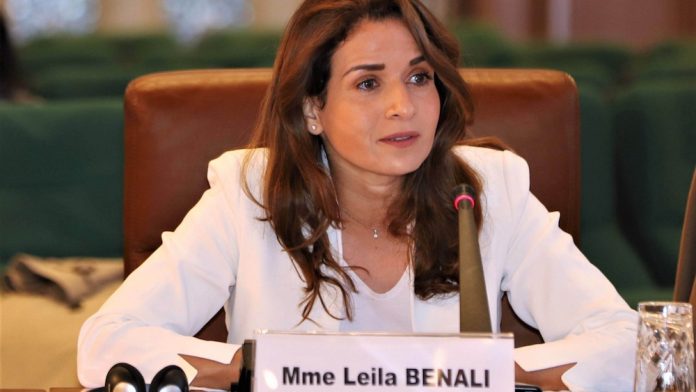Leila Benali, Morocco’s Minister of Energy Transition and Sustainable Development, has made a strong case for the establishment of an integrated and agile ecosystem to support the development of e-fuels in Morocco. Speaking at an international conference on e-fuels, Minister Benali emphasized the need for a conducive environment that includes research and development, innovation, infrastructure, and the necessary human capital. She also highlighted the importance of speeding up certification and standardization processes to prevent bottlenecks and mitigate risks associated with e-fuel trade in light of carbon adjustment mechanisms.
“Morocco, with its strategic geographical position, can play a key role in global e-fuel value chains, particularly through its green hydrogen offerings, renewable energy project developments, and partnerships with the private sector,” Benali stated.
Industry and Commerce Minister Ryad Mezzour stressed the critical role of cost in the viability of e-fuels, noting that realistic cost expectations are essential for large-scale adoption, even with appropriate regulations and support.
Addressing the logistical challenges related to the transport and storage of hydrogen and the need for CO2 capture to produce e-fuels, Mezzour underscored the importance of collective intelligence in finding sustainable solutions.
Mohammed Yahya Zniber, President of the Green H2 Cluster, discussed the infrastructure needs for generating, transporting, storing, and distributing the electricity required for large-scale e-fuel production. He emphasized the necessity of developing regulatory frameworks to support the industry’s deployment.
Royal Air Maroc (RAM) CEO Abdelhamid Addou highlighted the significance of sustainable aviation fuels (SAF) in RAM’s roadmap to achieve carbon neutrality by 2050. “Morocco is well-positioned to produce competitive SAF, and RAM supports this initiative, aiming to have planes take off from Morocco with 100% locally produced SAF within the next five years,” Addou said in a speech delivered by RAM’s Deputy Director of Transformation, Tarek Chbourk.
Dutch Ambassador to Morocco, Jeroen Roodenburg, affirmed that Morocco, with its comparative advantages, can become a major producer and exporter of hydrogen and its derivatives. He highlighted the role of diversifying renewable energy sources in industrial decarbonization.
Tarik Hamane, Deputy General Manager of the Moroccan Agency for Sustainable Energy (MASEN), pointed out Morocco’s significant renewable energy potential and world-class infrastructure, including ports, pipelines, and transport lines, which will facilitate the export of green hydrogen to European markets and beyond.
Omar Alaoui M’hamdi, Vice-President of the Green Economy and Decarbonization Commission at the General Confederation of Moroccan Enterprises (CGEM), emphasized the importance of a robust fiscal framework to foster renewable energy projects and reduce production risks.
Organized by the Green H2 Cluster under the aegis of the Ministry of Energy Transition and Sustainable Development, the conference provided a platform to discuss advancements in the e-fuels sector and Morocco’s efforts to position itself as a leading player in green hydrogen. This event highlighted the country’s commitment to developing a sustainable energy ecosystem and leveraging its strategic advantages to contribute to global decarbonization efforts.





